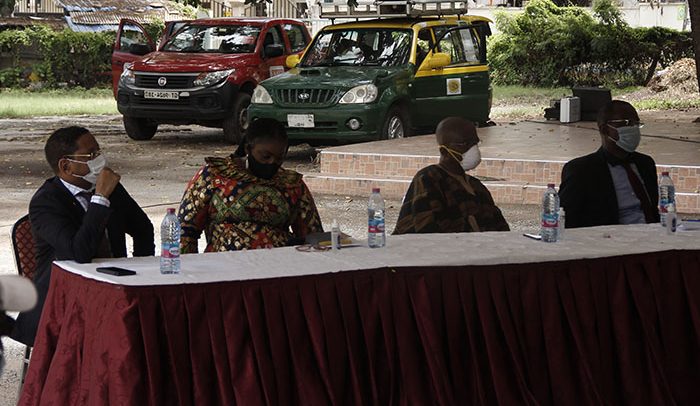THE PRESIDENT of the Ghana Journalists Association (GJA), Dr. Roland Affail Monney, has stated that journalism is a profession not for the timid, but for the brave.
Delivering his welcome address at this year’s World Press Freedom Day held under the theme: “Journalism Without Fear or Favour”, Dr. Monney stressed that journalism is for brave uncompromising individuals who speak to authorities and expose acts of corruption.
“The theme reinforces the point that journalism is not a profession for timid, timorous souls, but one for brave and uncompromising characters. This tough, indomitable streak enables some leading journalists to talk true to power, expose acts of corruption and hold the powerful to account,” he said.
He bemoaned Ghana’s decline on the global league table of free media systems in recent years as Ghana was ranked 23rd in 2018, 27th in 2019 and 30th in 2020.
According to Dr. Monney, the common factor responsible for the decline is impunity, saying “impunity, if not checked, ignites a self-propelling and re-energizing cycle which then becomes hellishly difficult to uproot.”
He called on authorities “to deal surgically with the calcifying cancer of impunity”, by prosecuting and punishing perpetrators of attacks against journalists regardless of their status or political links.
He said that even though Ghana’s media system has been adjudged as satisfactory by global benchmark and outranking paragons of journalism like US, UK and France at the 30th position, we should not give room for complacency.
Dr. Monney went on to advise media practitioners not to disregard ethical values, saying “press freedom is a liberty and not a licence – liberty to perform and not licence to destroy.”
The Deputy Minister for Information, Nana Ama Dokua Asiamah-Adjei, stressed that the theme for this year’s celebration calls for more ‘coordinated and deepened’ efforts between the stakeholders as far as the media landscape is concerned to secure a conducive operating environment for the media to thrive.
She also entreated journalists to avoid sensationalism and the use of derogatory and intemperate language in their work.
“In this competitive environment of journalism, the public, who are your major stakeholders, are the best judges and they will judge us by our work and output.
“Let us invest more resources into investigating and publishing the fact and let the public make up their mind,” she added.
On the impact of the coronavirus (Covid-19) pandemic on the media industry, the deputy minister gave an assurance that the impact on the industry is being examined by government and would be addressed within the broader Government Economic response programme to be announced later.

The programme was held at the Ghana International Press Centre (GIPC) in Accra.
Also in attendance were Abdourahamane Diallo, UNESCO Representative to Ghana, some government officials, representatives from the Ghana Police Service, executives of the GJA, veteran and practising journalists, as well as heads of various media groupings.
Various speakers used the opportunity to commend the media for the good work they are doing in informing, educating and sensitizing the general public to the Covid-19 pandemic.
The Ghana and GJA flags were hoisted by the Deputy Minister for Information and the GJA President respectively.
By Nii Adjei Mensahfio


